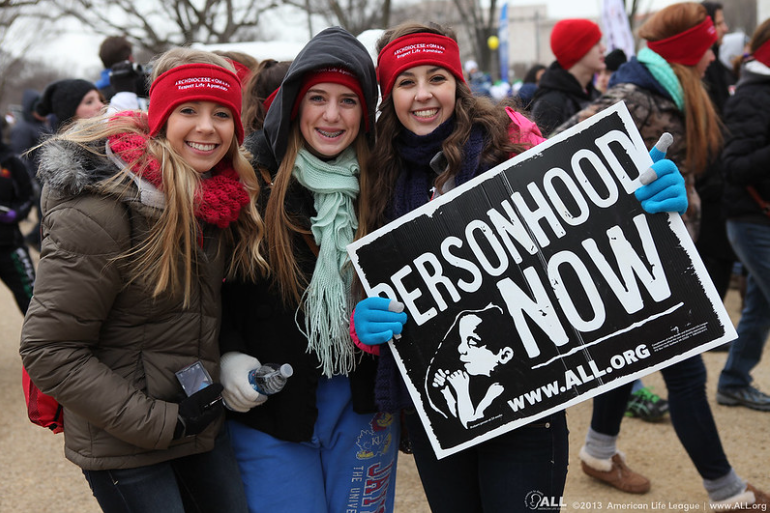Last week, the Iowa House passed a fetal personhood bill. Although it received some push back, the bill did not experience the mockery and scare tactics used on our state after Alabama’s Supreme Court ruled in favor of fetal personhood in LePage v. Mobile Infirmary Clinic.
Allowing Alabama IVF families who lost embryos to sue under The Wrongful Death of a Minor Act is no different than this Iowa bill. However, the usually expeditious American Society for Reproductive Medicine doesn’t seem to be blowing as much smoke for this Iowa bill, even though they were all over the Alabama Supreme Court decision and the knee-jerk legislation the Alabama Legislature passed to supposedly protect IVF providers.
This affirms my suspicions: Alabama is a hard target for the abortion lobby to not only erode our state laws, but to bring abortion rights back under federal purview.
But what the abortion industry did not anticipate was that LePage opened the national door to the subject of fetal personhood, and Iowa took the opportunity to deepen that discussion.
This is all trending in the right direction: re-creating a culture of life that protects all human beings, even the preborn.
A new front in that culture of life fight is fetal personhood, which has been gaining prominence since Roe v. Wade was overturned. Abolitionists Rising – a non-profit seeking wholesale removal of the right to abortion – and the Foundation to Abolish Abortion – another non-profit promoting policy that seeks for all human beings to have equal protection under the law – are the main proponents within this abolition movement.
One of the leaders in this movement is attorney Bradley Pierce, a recent guest on “1819 News: The Podcast” with Bryan Dawson. Pierce talked about the huge need for Christians to be in this arena, serving in mundane ways, but also ready to fight when necessary.
The interview unpacked some of the strawman arguments surrounding fetal personhood, including the misconception that it will destroy opportunities for parents seeking IVF.
Dawson and Pierce explained that the laws of Alabama do not actually outlaw abortion; indeed, abortion still occurs in the state via the abortion pill. Even though Alabama has outlawed clinics and third-party abortion service providers, the mother can still choose to legally abort her baby. Abolitionists want to see this option removed from law.
Pierce advocates for legal recognition of preborn life – whether a fetus or a product of IVF – through fetal personhood laws, although he also points out that these lives should already be protected under the murder statutes present in state and federal law.
The abortion lobby is not happy about the increasing discussion surrounding personhood laws because they have worked long and hard to soften the murder of innocents, couching it in terms like “health care,” “reproductive rights,” and “family planning.” Yet, the essential component of murder is preferring one life over another. Pierce’s conversation with Dawson focuses on the issue of accountability, arguing why laws must uphold life and why people must be held accountable for destroying life.
Pierce first encourages us to teach people the value of life and the heinousness of murder. We should deter people by creating fear of consequences, he says, and such fear is produced through severe penalties for breaking the law. Finally, we must enforce the law, bringing justice for the victims (in this case, the embryo or preborn child) when the law is broken.
This issue is pretty black and white, but there are also shades of gray. The abortion lobby, and even pro-life conservatives and right-of-center individuals use sleight-of-hand messaging and arguments. One message is that personhood laws could portend a return to back-alley abortions and coat hangers. Another is that miscarriages and D&Cs for ectopic pregnancies will be prosecuted. But the biggest bogeyman is that these laws will criminalize mothers.
The abortion lobby fears these fetal personhood laws are puzzle pieces in the bigger picture and will spread fetal personhood nationally. Speaking with University of California-Davis law professor Mary Ziegler about the Alabama LePage v. Mobile Infirmary ruling, NPR said the following:
“The more times a state recognizes a fetus as a person in one area of law, the easier it will be for lawyers to make the argument that it's inconsistent that fetuses aren't recognized as people by the Constitution. If states like Alabama and Florida recognize fetuses as people in their laws and constitutions, she said, it helps set the dominos for an argument on the national level.”
Now we understand why Alabama continues to be a target.
Abolitionists are wise to use methodical, long-game measures to embed legal protections for the life of the preborn. But it goes beyond that. The real fight is restoring a culture that honors life.
And there is much work to be done. When you uphold life in one arena, it affects all the others. The conversation on fetal personhood should lead to the dignity of foster children, trafficked children, and incarcerated teenagers and adults. The domino effect will hopefully continue to fall in the direction of life and its quality for all.
The abortion lobby sees a slippery slope, but it’s really a fine line. Bradley Pierce and other abolitionists are toeing that line to save children, and ultimately, our nation.
Jennifer Oliver O'Connell, As the Girl Turns, is an investigative journalist, author, opinion analyst, and contributor to 1819 News, Redstate, and other publications. Jennifer writes on Politics and Pop Culture, with occasional detours into Reinvention, Yoga, and Food. You can read more about Jennifer's world at her As the Girl Turns website. You can also follow her on Facebook, Twitter, and Telegram.
The views and opinions expressed here are those of the author and do not necessarily reflect the policy or position of 1819 News. To comment, please send an email with your name and contact information to Commentary@1819news.com.
Don’t miss out! Subscribe to our newsletter and get our top stories every weekday morning.










